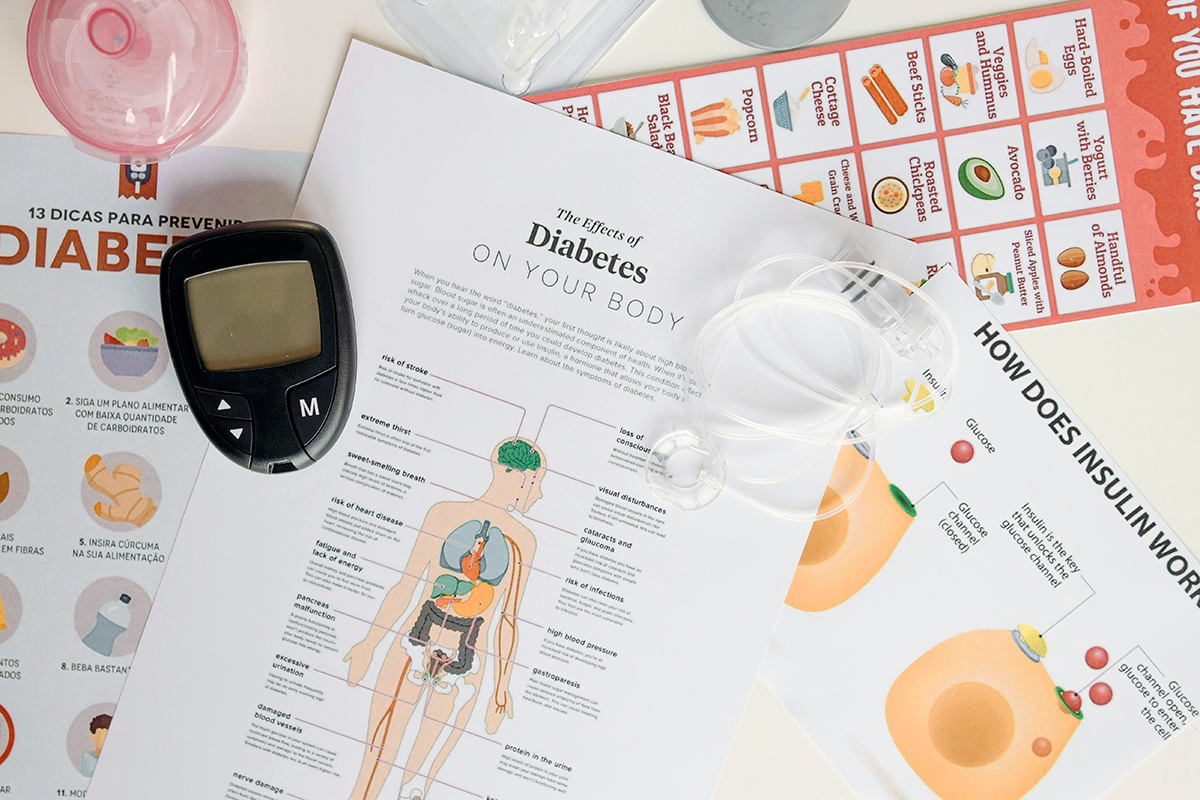I’m 37 years old and recently found out that I am considered prediabetic according to my hemoglobin A1c level of 5.7. I was surprised to learn this given that I have no family history of type 2 diabetes as far as I know. My PCP’s guidance was along the lines of “just eat healthy, exercise regularly, and try to limit simple carbs,” which I already do. I consider myself to be healthier than the average American adult, eat healthfully, and work out four to five times per week. However, I’m a mom to two young kids, so my diet does include pizza and pasta on a weekly basis, though meals like this always include vegetables and protein. I’m confused about what to do next given my seemingly mostly healthy lifestyle and the realities of meals with little kids (I really don’t want to model food restriction). What does the research actually say about the potential risks of prediabetes?
–Jess
Hemoglobin A1c is a great screening tool. It can be performed with a routine blood test, does not need to be drawn after fasting, is cheap, and provides information on an individual’s blood sugars over the last three months. It’s really a simple test that measures the percentage of red blood cells that have sugars attached to the outside of them. There is a direct relationship between that percentage and a person’s average blood sugar over the last three months.
As a result of its simplicity, more and more primary care doctors include hemoglobin A1c in patients’ routine blood work. However, we do not have great systems in place to deal with abnormal results. Countless patients with mildly elevated hemoglobin A1cs get the same vague advice you did — eat less sugar, exercise more.

Type 2 diabetes affects more than 10% of people in the U.S., so we assume that anyone with a rising hemoglobin A1c must have type 2 diabetes. But type 2 diabetes is highly heritable — patients with type 2 diabetes inherit genes from their parents that put them at risk of developing the disease.
If you have no family history of type 2 diabetes, no personal history of gestational diabetes, live a relatively healthy lifestyle, and do not have morbid obesity, it is imperative to look for other causes of an elevated hemoglobin A1c.
The most pressing reason to do so is to make sure you don’t have type 1 diabetes. This can be done with a blood test to check for the antibodies that cause the disease. Type 1 diabetes is an autoimmune disorder that causes the pancreas to be unable to make insulin. It is rare and typically develops in the teens and 20s. However, late-onset type 1 diabetes is more common than people think. There is also a treatment available now to patients with signs of type 1 diabetes who do not yet need insulin. It slows the loss of insulin-producing cells and can put off the need for insulin treatment for many years.
There are other reasons hemoglobin A1c may be inaccurate. For example, Black people have higher hemoglobin A1cs than people of other races. Some medications like steroids can raise blood sugar temporarily, and a couple of weeks of steroids in the last three months might be enough to increase your hemoglobin A1c significantly.
If after further investigation you do have prediabetes and are at risk of developing type 2 diabetes, both lifestyle modification and medications have been shown to reduce this risk. Metformin in particular has been shown to reduce the risk of progressing from prediabetes to diabetes.
Recent data shows that semaglutide (Ozempic/Wegovy) not only reduced the risk of progressing from prediabetes to diabetes in people with overweight and obesity but also reversed the participants’ prediabetes. If you have prediabetes despite your lifestyle being on point, it is worth considering these medications.
The takeaway: If you have a hemoglobin A1c in the prediabetic range and you do not have risk factors for type 2 diabetes, you should talk to your doctor about investigating other causes of an elevated hemoglobin A1c. If you are at risk of developing type 2 diabetes, you might consider metformin or semaglutide in addition to lifestyle modification to prevent progression.
Community Guidelines
















Log in
This almost could have been me writing this. What is most strange is that my husband and my mother got the exact same result (5.7) for the first time within the last year…seems unlikely all 3 of us would have begun developing Type 1 diabetes at the same time.